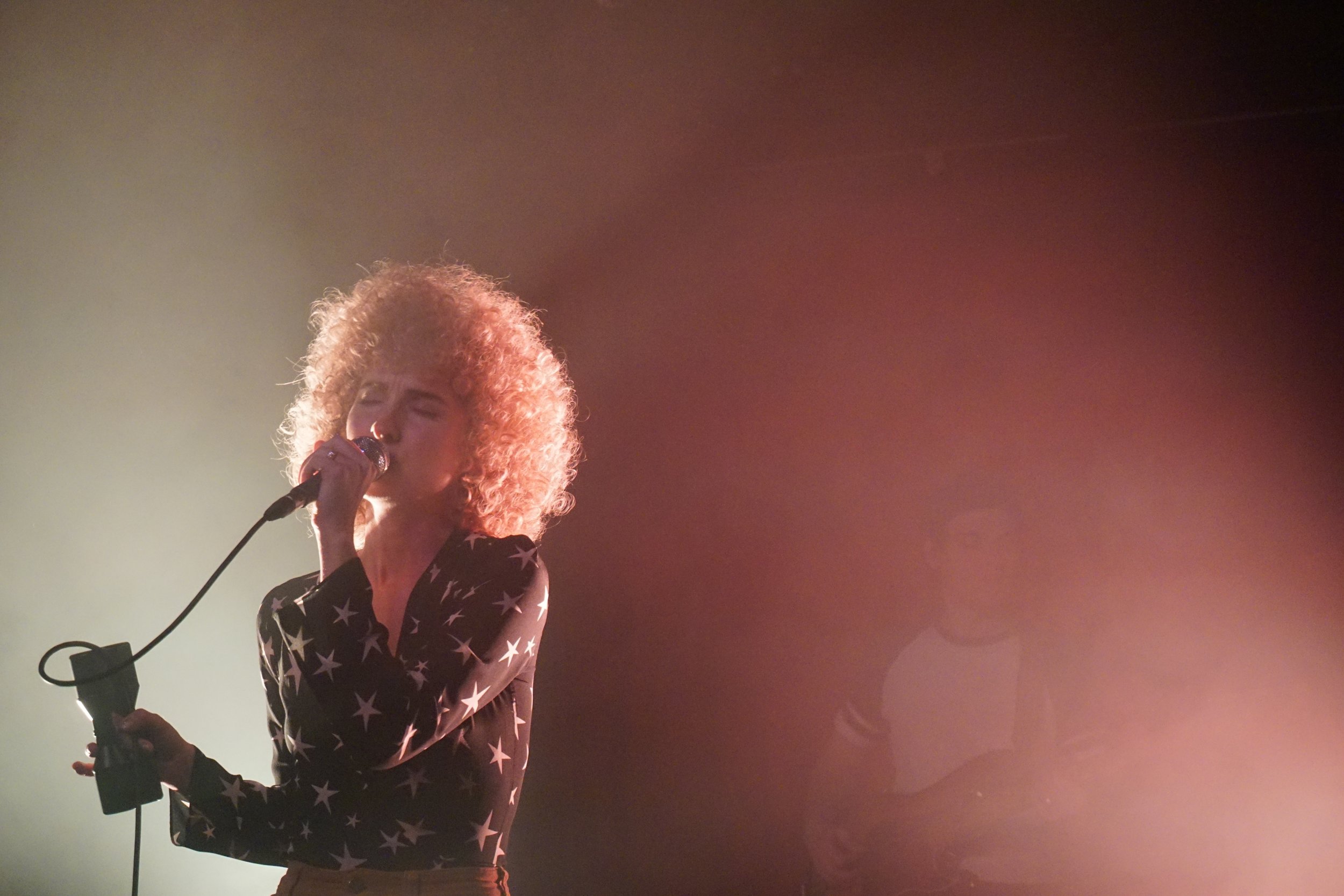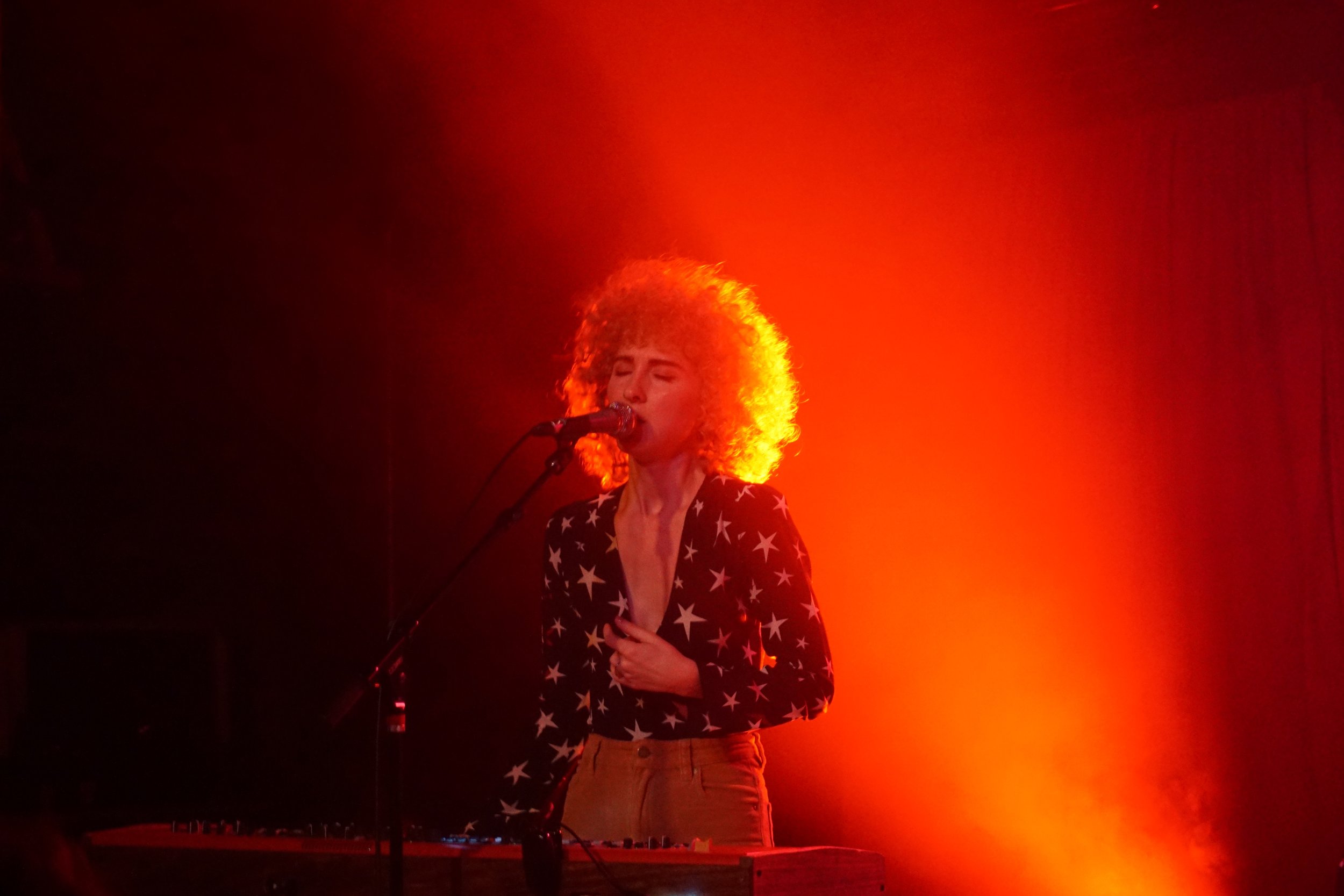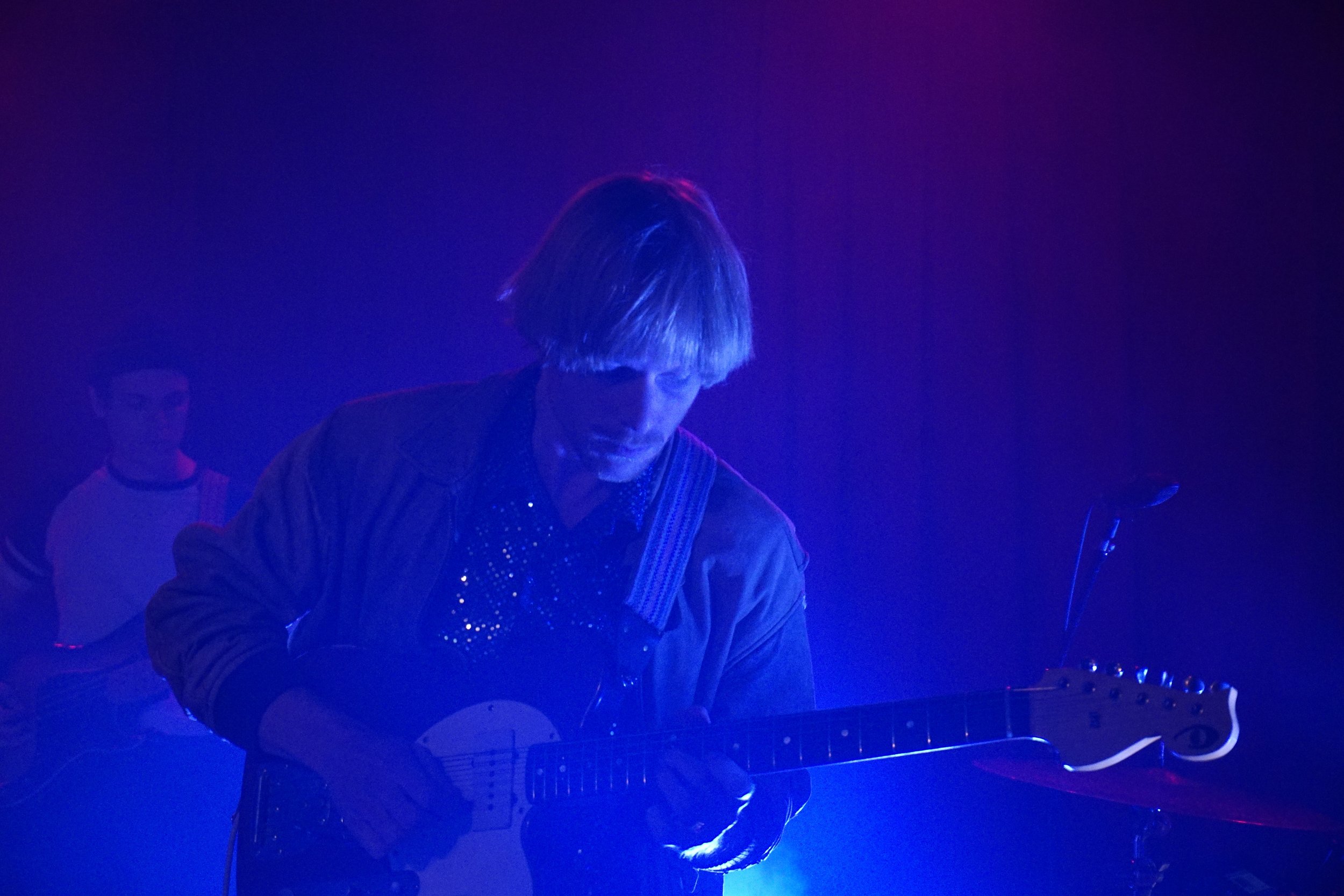Now/It's: Tennis at Mercy Lounge.

For the past four years or so, Tennis has been the band making perennial appearances at the top of any and every algorithm-based “you may enjoy listening to” list across my listening platforms. Watch a video of “Darling” by Real Estate, Tennis’ video for “My Better Self” is the top suggested follow-up. Listen to Beach Fossils, TOPS, or Widowspeak, and Tennis is almost always at the top of the suggested listening charts. If that’s the case, then why, pray tell, would it take nearly half a decade before someone such as myself would take a chance on the apparently fetching looking fuzz rock duo from Denver? In short, just sheer dumb idiocy.
As 2017 came and went, during some point in the middle of the year, the thought of Tennis likely being a band whose music I would quite enjoy began to nag my subconscious almost incessantly. So come November of 2017, when Tennis released their second EP, We Can Die Happy, following the release of their fourth LP, Yours Conditionally, in March 2017, I began to reverse engineer the band’s entire discography.
In a nutshell, the entire process could be summed up pretty succinctly with a an aphoristic “better late than never,” quote and segue right into their most recent Nashville stop, but as long-windedness is a much beloved foible, I’d like to take a minute (albeit, a brief one) to admire the impressive (and quietly robust) discography of Alaina Moore, Patrick Riley, and co. From Cape Dory (2011) on, Tennis look at rock and pop music trends of the moment, and continually mesh the two together into a far more substantive take on rock music. They shift from jangle rock to dreamwave to shoegaze to warm fuzz rock, all the while maintaining what has now become the “Tennis sound.” It would be unfair to try and brand the aforementioned “sound” with specificity, so let’s just leave it at the fact that Tennis’ “sound” is uniquely their own.
Speaking of uniquity, Tennis’ live show is inexorably distinct. There are moments of surrealism, poignancy, ironicism, and realism throughout, which makes for a truly enthralling experience. Musically, songs wash over the audience, precisely imbued by Alaina, Patrick, and company, but at the same token, sound distinctively different than the recorded counterparts. I think of songs like “Never Work For Free” as songs that feel, for lack of a better term, funkier live than they do through simple listening, a credit to Tennis’ supremely deft rhythm section and Patrick’s guitar work.
With all that in mind, there is an aspect of Tennis’ live show that seems to be wholly underappreciated - lead singer Alaina Moore’s exceptional dexterity on the keyboards. As an additional credit to Tennis as a whole, while the songs might sound soft and sweet, the musicality, rhythms, and melodies are far from a walk in the park. And who has the carry the brunt of that weight? Well, Alaina Moore, of course. I feel like bands that feature electric keys, or synthesizers tend to be discredited from a musicianship standpoint, because companies like Moog, Nord, and Teenage Engineering have created some truly remarkable devices. Nevertheless, songs like “Matrimony,” and “I’m Callin’” allow for Moore to flex both vocal and dexterous abilities for any and all to fall to their needs in repentance. In terms of lead singers/front-persons, Alaina Moore is a force to be reckoned with.
Ultimately, Tennis’ sold out show at Mercy Lounge served as a massive exemplar of just how behind I was on the Tennis come up. But there’s no shame in that, as I’m on board the train now, and don’t plan on getting off any time soon.














